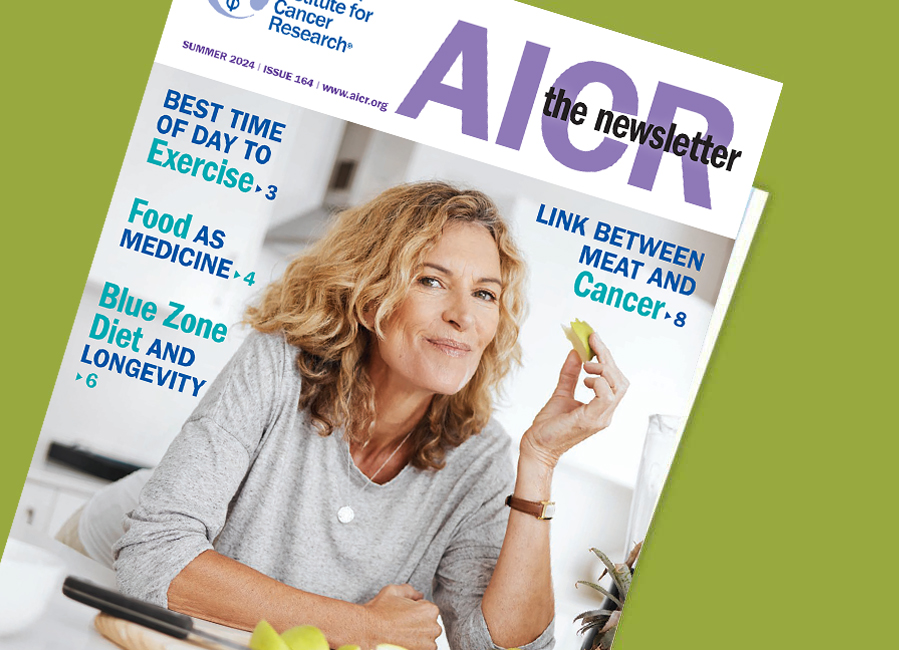Key Takeaways:
- Regular physical activity helps reduce cancer risk, even with minimal amounts like 11 minutes per day.
- Exercise is recommended before, during and after cancer treatment and helps with both physical and mental health.
- The best type of exercise is anything that increases your heart rate, maintains muscle and is something you can enjoy and stick with.
Exercise is medicine, and oncologists recommend taking it daily. It’s time to sit less and move more to benefit your overall health.
Regular physical activity supports your immune system, reduces chronic inflammation and balances hormones, which all help reduce cancer risk. Being physically active also improves mental health. AICR has been advocating for physical activity since the first Expert Report in 1997.
Making Strides Toward Better Health
For those undergoing treatment, even small amounts of activity can help counter the side effects of chemotherapy. According to the American Society of Clinical Oncology, engaging in regular aerobic activity and strength training during cancer treatment reduces fatigue, maintains strength, reduces anxiety and depression and improves quality of life. These benefits continue after treatment.
Moreover, research suggests that breast, prostate and colorectal cancer survivors have a lower risk of dying from those cancers if they exercise regularly.
How Much Exercise Is Enough?
Whether it’s for cancer prevention or survivorship, AICR encourages everyone to “move more and sit less,” ideally for 150 minutes weekly. That averages about 30 minutes of activity most days of the week.
If that sounds daunting, don’t despair. A recent study on more than 30 million people published in the British Journal of Sports Medicine looked at exercise and the risk of death from cancer and all causes. Researchers found that while 150 minutes is ideal, even half that amount, about 75 minutes per week (just 11 minutes a day), has health benefits and may help you live longer.
As for the best type of exercise? Walking is easy and inexpensive. But swimming, aerobics, biking or anything that increases your heart rate and maintains muscle has benefits. The best exercise is one you enjoy and stick with.
Taking the First Steps
If you’re not currently physically active, ask your health-care provider about the best type and amount of exercise that is right for you. They may recommend supervised physical therapy sessions or an exercise program at first. Start slowly and gradually build up as your strength and endurance improve.
Exercise is also more enjoyable when you do it with a buddy, so ask someone to join you for short walks or to train for a race. Whether you do a little or a lot, regular physical activity has powerful benefits and is a key part of cancer treatment and care. Whether it’s a 10-minute walk or a 10-mile run, exercise helps with cancer care.
AN EYE ON THE FINISH LINE
Diagnosed with breast cancer while pregnant, Emily Williams delivered a healthy baby girl five days after finishing chemo. Her oncologist encouraged exercise during treatment to help reduce side effects. “I stayed active throughout my treatments and up to the day my water broke,” says Williams.
She credits exercise with improved strength and mental well-being, and faster surgery recovery. An avid marathoner, Williams focused on the finish line throughout her treatment and pregnancy. She couldn’t think of a better way to celebrate the gift of her new life and her daughter’s than by joining TeamAICR to raise $6,500 for a cancer-free future while training for the London Marathon.
Read more about Emily’s inspiring story here.





